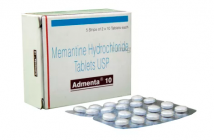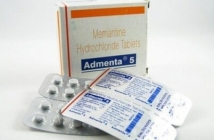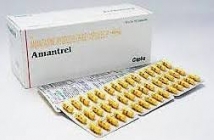Home / Categories / FELIZ-S-5MG

FELIZ-S-5MG
(50STX10T)
ESCITALOPRAM-5MG
SELECTIVE SEROTONIN REUPTAKE INHIBITOR(SSRI)
TORRENT-MIND DIVISION
Product Details
Escitalopram Oxalate
Action
Indications
Contraindications
Route/Dosage
Interactions
Lab Test Interferences
Adverse Reactions
PrecautionsPatient Care Considerations
Administration/Storage
Assessment/Interventions
Patient/Family Education
(ESS-sigh-TAL-oh-pram OX-ah-late)LexaproTablets: 5 mg, 10 mg, 20 mgClass: Antidepressants/Selective serotonin reuptake inhibitor
Action Inhibits the CNS neuronal uptake of serotonin, potentiating serotonergic activity.
Indications Treatment of major depressive disorders.
Contraindications Standard consideration; concurrent use of MAO inhibitors or within 14 days of discontinuing MAO inhibitor treatment.
Route/Dosage
ADULTS: PO Start with 10 mg once daily. The dose may be increased to 20 mg after 1 week. However, 20 mg has not shown a clinical benefit over 10 mg.
Interactions
Alcohol: May potentiate the effects of alcohol; use of alcohol is not recommended. Carbamazepine: Possibility of decreased escitalopram serum concentrations and reduced efficacy should be considered. Cimetidine: Serum levels may be increased by cimetidine. CNS drugs: Use with caution. Lithium: Serotonergic effects of escitalopram may be enhanced; use with caution. MAO inhibitors: Do not use in patients receiving MAO inhibitor therapy or within 14 days of stopping such treatment. Metoprolol: Serum levels may be increased by escitalopram. Sumatriptan: Rare postmarketing reports of weakness, hyperreflexia, and incoordination following coadministration with selective serotonin reuptake inhibitors have been reported.
Lab Test Interferences None well documented.
Adverse Reactions
CV: Palpitations; hypertension. CNS: Dizziness; insomnia; somnolence; decreased appetite; decreased libido; paresthesia; lightheadedness; migraine; tremor; vertigo; abnormal dreaming; yawning; lethargy; irritability; impaired concentration. DERM: Rash. EENT: Nasal congestion; blurred vision; ear ache; tinnitus. GI: Dry mouth; nausea; diarrhea; constipation; indigestion; abdominal pain; vomiting; flatulence; heartburn; toothache; gastroenteritis; abdominal cramp; gastroesophageal reflux. GU: Ejaculatory disorder; impotence; anorgasmia; menstrual cramps; urinary tract infection; urinary frequency. META: Weight gain and loss. RESP: Rhinitis; sinusitis; bronchitis; sinus congestion; coughing; sinus headache. OTHER: Sweating; flu-like symptoms; fatigue; allergy; limb pain; hot flushes; fever; chest pain; arthralgia; neck and shoulder pain; muscle cramps; myalgia.
Precautions
Pregnancy: Category C. Lactation: Excreted in breast milk. Children: Safety and efficacy not established. Cognitive and motor performance: Patients should use caution in operating potentially hazardous machinery or driving until they know whether the drug impairs their ability. Concomitant illness: Use with caution in patients with concurrent systemic illness. Mania/hyponatremia: May activate hypomania or mania. Seizures: Initiate therapy with caution in patients with history of seizure disorders.
PATIENT CARE CONSIDERATIONS
Administration/Storage
- Do not administer with, or within 14 days of MAO inhibitor administration.
- Do not coadminister with citalopram.
- Administer dose once daily, in the morning or evening, without regard to meals.
- Store tablets at controlled room temperature (59° to 86°F).
Assessment/Interventions
- Obtain patient history, including drug history and any known allergies. Determine whether any MAO inhibitors have been used in the past 14 days. Note history of mania, liver disease, severe kidney impairment, or seizure disorder.
- Continue suicide monitoring of high-risk patients.
- Observe for signs of mood change and report to health care provider.
- Monitor patient for CNS, GI, psychiatric, musculoskeletal, urogenital and general body side effects. Report to health care provider if noted and significant.
OVERDOSAGE: SIGNS & SYMPTOMS Dizziness, sweating, nausea, vomiting, tremor, somnolence, sinus tachycardia, convulsions, amnesia, confusion, coma, hyperventilation, cyanosis, rhabdomyolysis, ECG changes
Patient/Family Education
- Explain name, dose, action, and potential side effects of drug.
- Advise patient to take once daily, in the morning or evening, without regard to meals.
- Advise patient to not change the dose or stop taking unless advised by their health care provider.
- Inform patient that it may take 1 to 4 wk to note improvement in symptoms and to continue with the prescribed therapy once improvement has been noted.
- Advise patient to take frequent sips of water, suck on ice chips or sugarless hard candy, or chew sugarless gum if dry mouth occurs.
- Advise patient to avoid alcoholic beverages.
- Advise patient that drug may impair judgement, thinking, or reflexes, and to use caution while driving or performing other tasks requiring mental alertness until tolerance is determined.
- Advise patient to contact health care provider if experiencing the following bothersome side effects: unusual sweating, headache, drowsiness, insomnia, nausea, tremors, changes in sexual function.
- Instruct patient not to take prescription or OTC drugs or dietary supplements without consulting with their health care provider.
- Advise women to notify their health care provider if becoming pregnant, planing on becoming pregnant, or breastfeeding.
Books@Ovid
Copyright © 2003 Facts and Comparisons
David S. Tatro
A to Z Drug Facts
Substitutes





